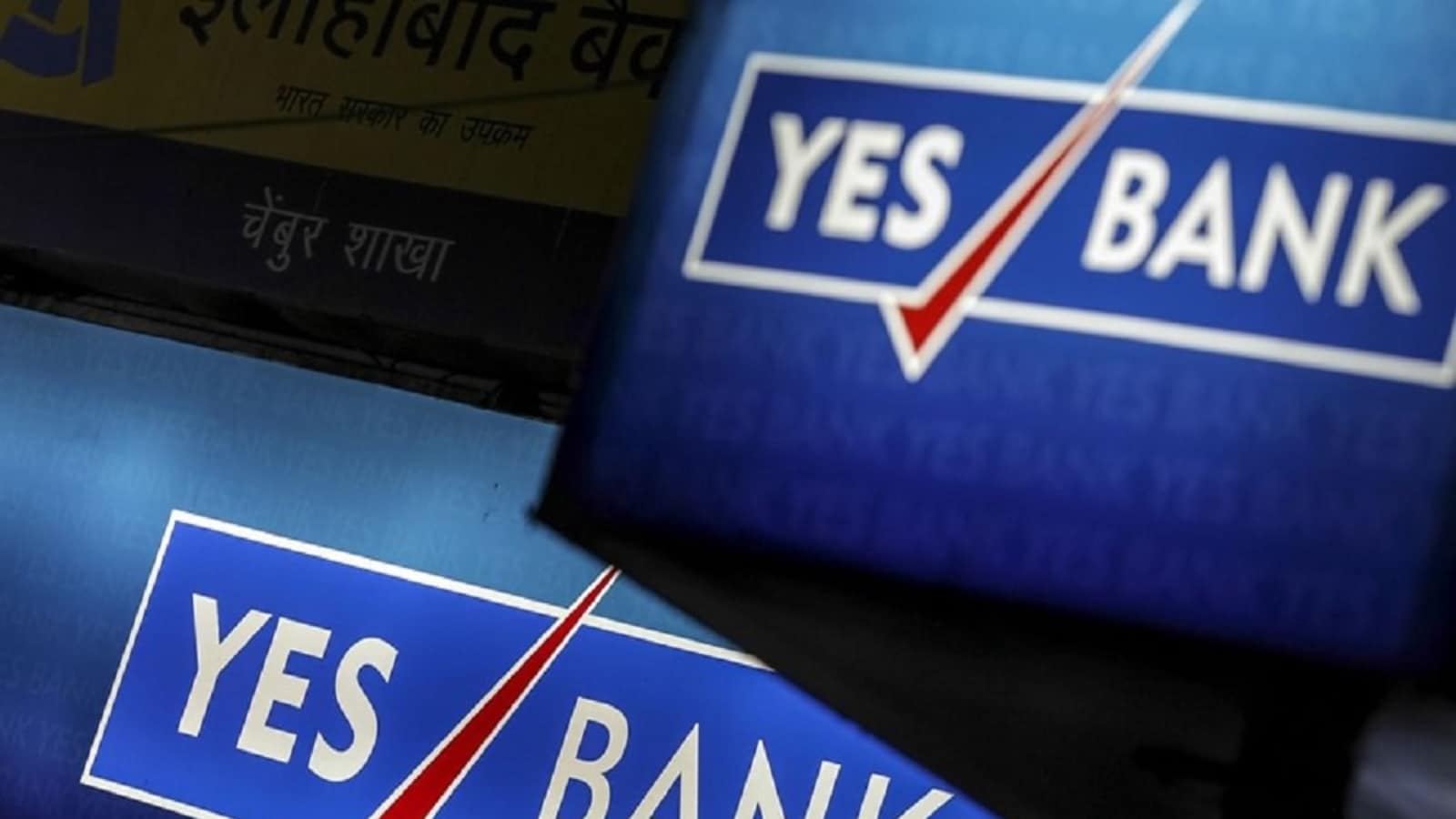YES Bank 3-Year Lock-In Period Ends Today; What Should Investors Do Now?
Yes Bank’s three years lock-in of State Bank of India (SBI) exposure expires today. The market is full of speculations that after the end of the three-year lock-in, SBI would book at least partial profit if not full profit which may lead to further downside in Yes Bank’s share price, which is already under the heat after the Supreme Court stayed Bombay High Court decision, which had set aside the writing down of Yes Bank’s AT-1 bonds of more than Rs 8,300 crore in January.
Similarly, three years lock-in of shareholding of Axis Bank, ICICI Bank, IDFC First Bank, HDFC Bank, etc bank is also expiring this month.
So, market experts say, some sell-off pressure to continue in Yes Bank shares in the next few sessions.
SBI Ltd, which initially acquired 49 per cent stake in YES Bank, held 26.14 per cent stake in the private bank, as of December 31, 2022. SBI was required to maintain at least 26 per cent stake in YES Bank for three years.
To recall, the rapidly deteriorating financial position of the YES Bank relating to liquidity, capital and other critical parameters, and the absence of any credible plan for infusion of capital had forced RBI to take immediate action. SBI was allotted 725 crore shares at a price of Rs 10 each worth Rs 7,250 crore. For the PSU, it was mandated not to reduce its holding below 26 per cent, before the completion of of three years.
Seven other lenders were allotted a total of 395 crore shares at Rs 10 each. A total of 75 per cent of such equity shares allotted to each such investor was subject to lock-in for three years from March 13, 2020. The remaining 25 per cent of the shareholding allotted to each investor was freely transferable.
Mortgage lender HDFC and private lender ICICI Bank had bought YES Bank shares worth Rs 1,000 crore each. Axis Bank invested Rs 600 crore in YES bank while Kotak Mahindra Bank had bought shares to the tune of Rs 500 crore. Federal Bank and Bandhan Bank invested Rs 300 crore each while IDFC Bank invested Rs 2,500 crore in the bank.
What Should Investors Do Now?
YES Bank shares have been witnessing increased volatility off late, as the holding lock-in period of three-year for a few private banks comes to an end in March 2023, said Amar Deo Singh, Head Advisory at Angel One. The scrip is down 20 per cent year-to-date.
“Given the bank’s approaching Q4 numbers, investors might decide on holding onto the stocks, as post the SBI management taking over the reins, the bank’s fortunes have improved marginally. Further, the Finance Ministry’s mechanism to handle bad loans is also likely to help YES Bank in the medium term. Technically, the stock seems to be consolidating in a range between Rs 15 and Rs 25. Investors can look at booking profits at higher levels,” Singh said.
Speaking on Yes Bank’s share price outlook, Avinash Gorakshkar, Head of Research at Profitmart Securities said, “Yes Bank shares are showing strength despite three-year lock-in of SBI ending today and few more banks lock-in ending in the next one week. This is an indication that these banks have taken exposure in Yes Bank to bail it out from the bad loan crisis. Just because Yes Bank shares have appreciated more than 60 per cent after SBI and other took exposure, doesn’t mean immediate profit booking after the end of the three-year lock-in. In my opinion, these banks may wait till the Q4FY23 results of Yes Bank, and then only they might take any decision in regard to profit booking.”
Suggesting Yes Bank shareholders to keep an eye on developments in regard to AT-1 bond write-off case at Supreme Court, Ravi Singhal, CEO at GCL Broking said, “Major hurdle for Yes Bank shares is Mumbai High Court set aside its decision to write off AT-1 bond worth around Rs 8,300 crore. The Supreme Court has stayed Mumbai High Court’s decision asking both RBI and Yes Bank to point out the rule that allowed them to write off the At-1 bond. The recent drop in Yes Bank should be seen from this angle instead of the fast approaching three-year lock-in of SBI or other banks.”
Advising buy-on-dips strategy to positional investors, Ganesh Dongre, Senior Manager — Technical Research at Anand Rathi said, “Yes Bank share price has strong support placed at Rs 15 apiece levels. So, those who have this stock in their portfolio are advised to maintain a stop loss at Rs 15 and keep on accumulating on every big dip as the stock is looking in an uptrend on the chart pattern. For those who want to enter Yes Bank, a share price falling around Rs 15.50 to Rs 16 would be a big opportunity for such fresh investors. In case, the stock falls below Rs 15 apiece levels, then my suggestion is to accumulate more around Rs 13 to Rs 13.50 apiece levels maintaining a stop loss at Rs 12 as we might see a sharp rebound in Yes Bank stock price if any speculative fall takes place in the banking scrip in upcoming sessions.”
Disclaimer:Disclaimer: The views and investment tips by experts in this News18.com report are their own and not those of the website or its management. Users are advised to check with certified experts before taking any investment decisions.
Read all the Latest Business News here
For all the latest business News Click Here

